This article may contain affiliate links. Please see our affiliate disclaimer in the footer menu for more information. Thank you for your support!
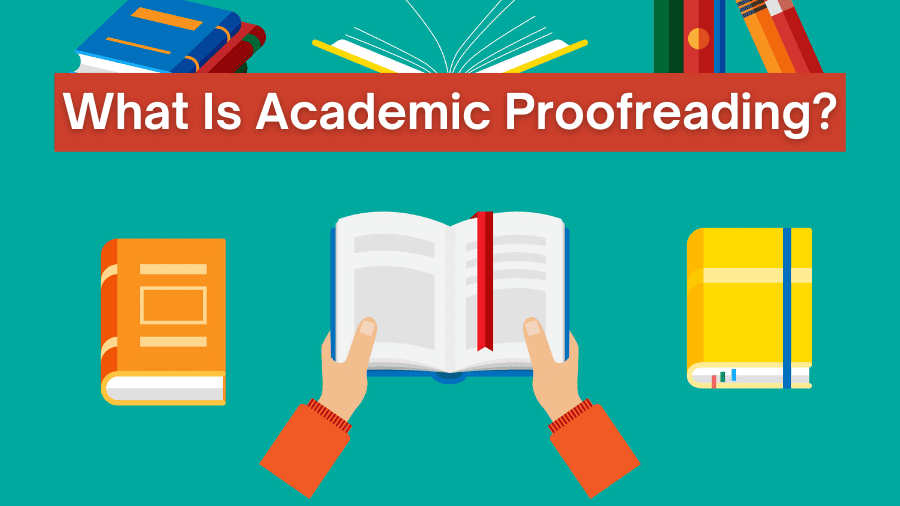
If you participate in academia in any capacity, you may wonder what academic proofreading entails. Given that students, professors, and researchers are responsible for producing a large volume of writing throughout their time in universities, it’s important to consider the role of proofreading. So what exactly is meant by academic proofreading?
Academic proofreading is the proofreading of scholarly documents produced by professors, researchers, and students within colleges and universities. It involves checking these texts for proper grammar, capitalization, spelling, punctuation, and formatting.
Academic proofreading has a few unique considerations compared to other kinds of proofreading.
Let’s discover more about this type of proofreading, including its vital role in the writing process. Then we’ll find out how you can best proofread your scholarly documents to ensure readers focus on your ideas and conclusions instead of getting caught up in a web of errors.
What Is Academic Proofreading?
As we know, academic proofreading is the proofreading of academic texts.
Proofreading is the last step in the four-step editorial process. Here’s a look at the four stages of editing:
- developmental editing
- line editing
- copyediting
- proofreading
I penned a post about the particulars of proofreading if you’d like to peruse it. The article discusses proofreading in general.
Academic Editing vs. Academic Proofreading
While editing deals with the big picture elements (organizational structure, clarity, tone, flow, etc.), proofreading addresses the details.
A proofreader will find and correct spelling, grammar, capitalization, punctuation, and formatting mistakes. They’ll also keep an eye out for improper word choices and words that have been repeated or omitted.
Similar to editors, proofreaders rely on the appropriate style guide to ensure the writing conforms to the specified guidelines.
They will also ensure the works-cited page, reference list, or bibliography is formatted correctly.
And an astute proofreader will make sure that all in-text citations have a corresponding source listed at the end of the paper. They’ll also eliminate any sources mentioned in the reference list or works-cited page that aren’t cited in the document.
Let’s see a few significant differences between academic proofreading and editing.
Academic Proofreading vs. Academic Editing
| Academic Editing | Academic Proofreading | |
|---|---|---|
| When It’s Done | on the first draft | on the last draft |
| What It Improves | the big picture | the details |
| Pace of Work | relatively slow (more in-depth) | moves faster than editing |
| Involves Rewriting? | sometimes | no |
| Subject Knowledge Required? | yes | highly preferable but not critical |
| Knowledge of Relevant Style Guide Needed? | yes | yes |
I authored an article about proofreading vs. editing if you’d like to delve into this topic.
Who Performs Academic Proofreading?
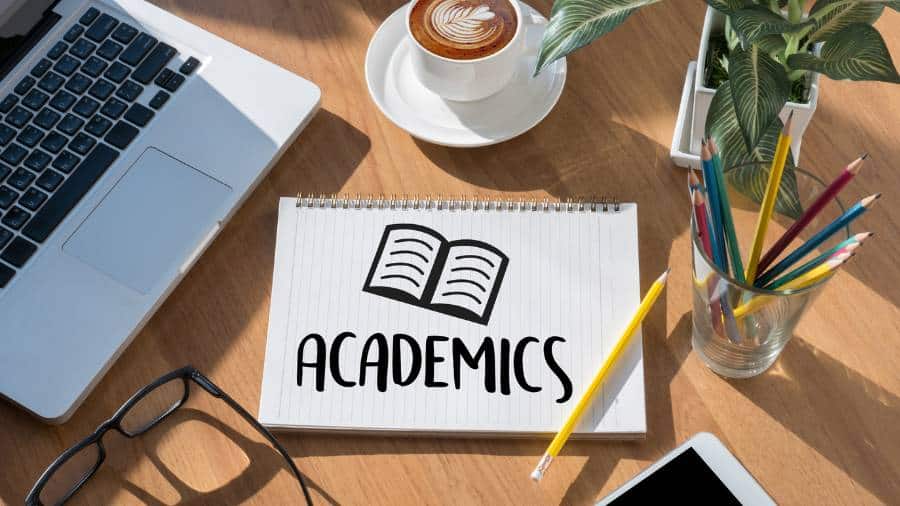
So who does academic proofreading? It depends.
Note: Under most circumstances, it’s okay for undergraduate students to have someone else proofread their work. However, it’s always best to check a university’s academic policy to be sure that all courses allow proofreading!
Although we typically think of academic proofreading as being performed by a professional proofreader, having another set of eyes on one’s work is beneficial—even if those eyes don’t belong to someone who has received formal training.
The proofreading can be done by a colleague or classmate, a friend or family member, or a professional proofreader.
Hiring a professional proofreader with knowledge of the relevant subject will undoubtedly provide the best results; however, this isn’t always feasible.
Let’s see several examples of documents that fall under the umbrella of academic proofreading.
Examples of Scholarly Texts that Need Proofreading
- research papers
- essays
- lab reports
- personal statements
- statements of purpose
- college admissions essays
- theses
- dissertations
- scholarly journal articles
- research proposals
Now let’s see who can benefit from academic proofreading.
Examples of People Who Need Academic Proofreading
- students applying to colleges
- undergraduate students
- graduate students
- professors
- researchers
Now that we know what academic proofreading involves, who does it, the kinds of documents they work on, and who may need it, let’s see why it’s essential.
What Is the Importance of Proofreading in Academic Writing?
Proofreading is essential in all kinds of writing, and academic writing is no exception. Academic texts are often scrutinized by academic publishing companies, admissions committees and professors.
Here are several reasons why academic proofreading is indispensable:
- It improves the chance that a professor’s research will be published.
- Proofreading ensures that a document’s sources are correctly cited and recorded.
- It allows for enhanced clarity and readability of a text.
- Proofreading provides the polish needed to produce high-quality work.
- It gives grad students a stronger thesis or dissertation.
- Proofreading increases the likelihood that students will get into their college of choice.
- It leads to better grades for undergrads.
Proofreading is the final step in the editorial process. Therefore, it’s the last chance to eliminate unsightly blunders that can distract readers and even deter them from comprehending the argument, findings, or message in a piece of scholarly writing.
How Do I Proofread My Academic Paper?
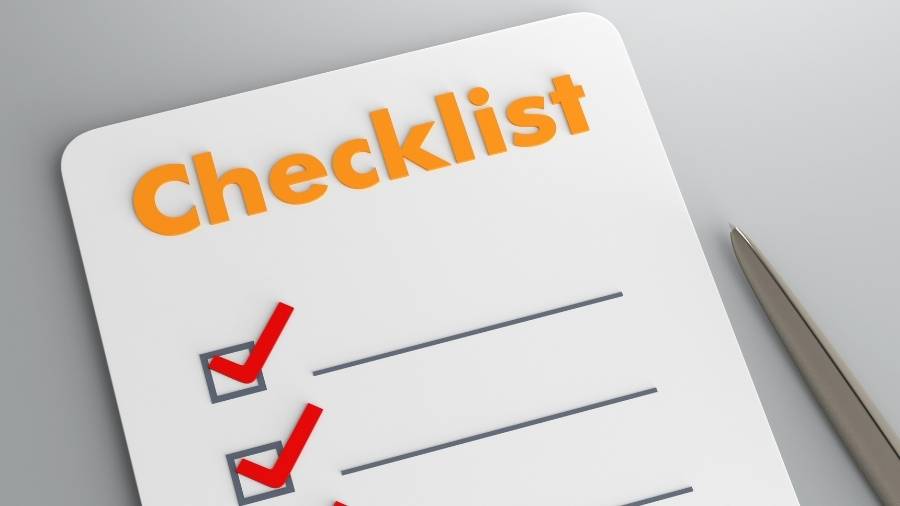
The best way to proofread an academic paper is carefully and methodically. Having a checklist of all the elements (grammar, punctuation, formatting, etc.) you need to review can be helpful. You’ll also want to follow the proofreading strategies that work best for you.
Let’s see some proofreading strategies that are applicable to scholarly documents.
1) Read your writing and hear your writing.
The best advice I can give you for proofreading an academic document is to read it out loud or have your computer read it to you using the Read Aloud function.
You’ve already read several sections of your paper as you composed it. You know what your text is supposed to say, and your eyes will likely read what you think you wrote instead of what you actually wrote.
Relying solely on your eyes while proofreading can lead to many missed mistakes.
To offset this disadvantage we face when proofing our work, we need to get another sense involved: hello, ears!
By hearing your text, you’ll notice mistakes that your eyes will inevitably miss. Of course, we can’t detect every error just by listening. For example, you’ll need your eyes on the screen to pick up punctuation pitfalls.
2) Slow down your reading speed.

When proofing with your eyes, my top tip is to slow down. I know you’re probably used to reading at a quick pace, but with proofreading, you have to pump the breaks!
Did you catch the gaffe in that last sentence, or were you reading fairly fast? It should have said brakes, not breaks.
Reading quickly will lead to overlooked flubs. Then you’ll have to proofread your paper again to catch the errors that escaped your scrutiny.
Since you don’t have time to waste, remember to proofread like a tortoise, not a hare.
3) Alter the text in some way.
To detect more missteps, change the appearance of your document. You can do this by modifying the font’s style, size, or color. You can also divide the text into two columns or increase the space between lines, giving those slipups more room to stand out.
With these changes in place, your brain will perceive reading your paper as a novel experience—increasing the likelihood you’ll find more fumbles.
I think these three tips will help you with proofreading. But if you’d like to learn more, I wrote an article that includes numerous proofreading techniques!
I also wrote a post about the elements to check when proofreading your work. You can use this article as a checklist as you proofread your paper.
Finally, if you need a professional to polish your work, you may want to read my article about the best academic proofreading services.
What Is an Academic Proofreader?
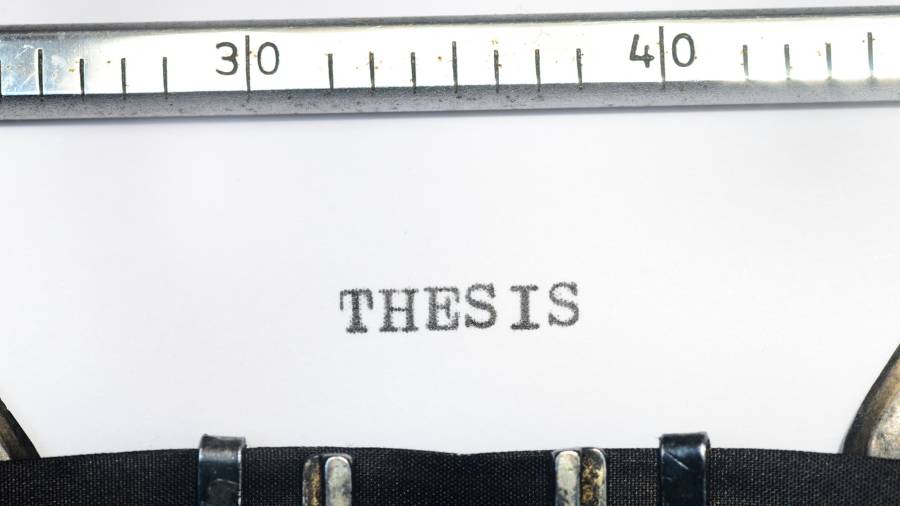
An academic proofreader is a professional who proofreads scholarly works like essays, theses, dissertations, and scholarly journal articles. They review these documents with a fine-tooth comb to locate and correct punctuation, grammar, capitalization, spelling, and formatting mistakes.
Academic proofreaders need to be familiar with at least one of the major style guides used in academic proofreading:
- The Chicago Manual of Style (for the humanities, especially history)
- the MLA (Modern Language Association) Handbook (for the humanities, especially literature)
- the Publication Manual of the American Psychological Association (for behavioral and social sciences)
They must also be well-acquainted with how to format elements like in-text citations, endnotes, footnotes, and quotations according to the relevant style guide.
The guide will also provide them with the requirements for formatting pages containing the list of sources that were consulted/used in a paper.
Finally, academic proofreaders need a wide range of knowledge to sufficiently understand the subject matter they proofread.
Some Academic Proofreaders Select a Niche
Academic proofreaders who polish texts written by grad students and college professors often choose to work within a niche that aligns with their subject matter expertise. The more they understand a particular topic, the easier it will be to proof papers about it.
If you’re interested in becoming an academic proofreader, you may want to read my article about the best online proofreading courses.
You’ll need proper training if you’d like to become a proofreader of any kind.
I hope this article has helped you better understand what is meant by academic proofreading.
Whether you need to proofread your paper or are thinking about becoming a proofreader, I wish you luck.
Best wishes to you!
“You are the universe, expressing itself as a human for a little while.”
– Eckhart Tolle
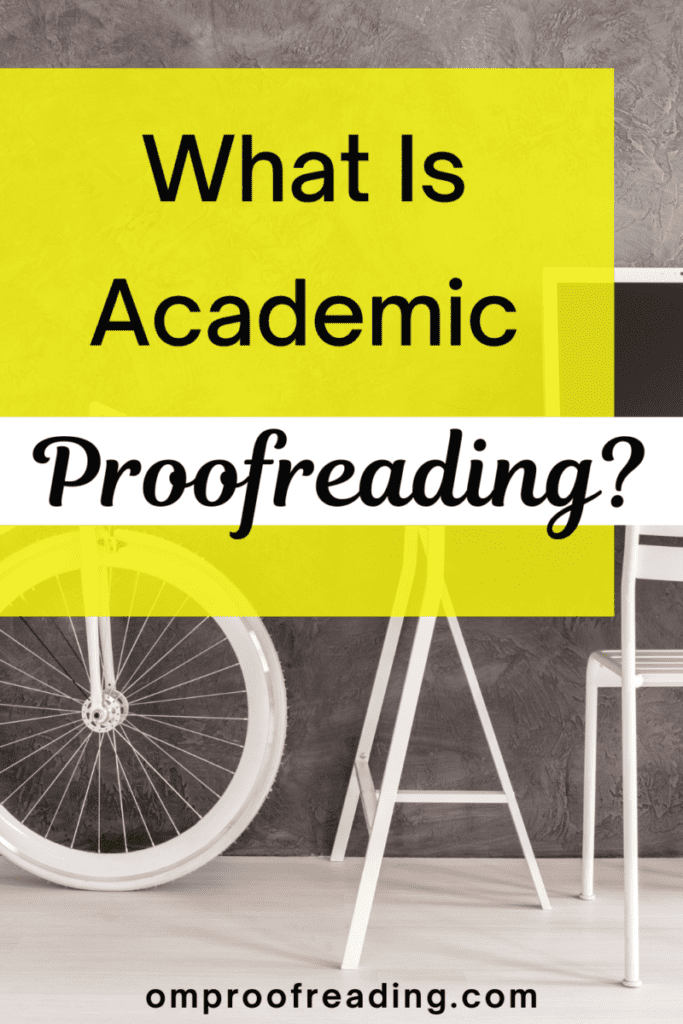
Recent Posts
Punctuation is important because it enables us to communicate our message clearly and effectively. Without punctuation, we wouldn’t understand how units of a sentence relate to one another or how...
Although you're probably somewhat familiar with adverbs, you may be unaware of sentence adverbs. As a trained proofreader who has studied the parts of speech, I can help you understand this unique...
